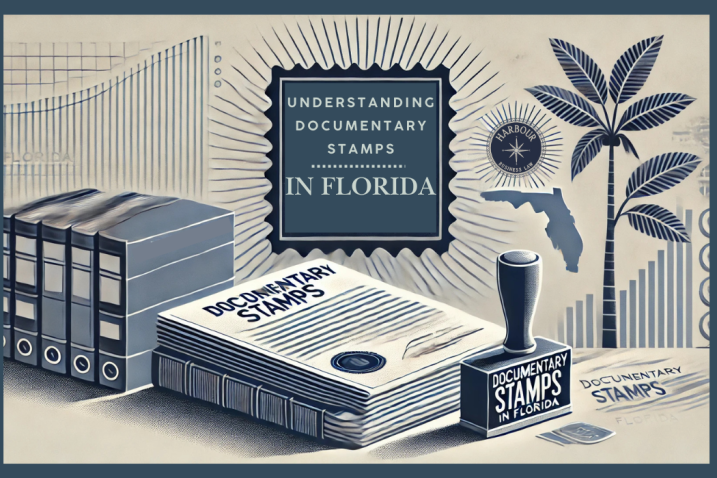
Documentary stamps, often referred to as doc stamps, are a type of tax imposed on certain documents executed, delivered, or recorded in Florida. These stamps are primarily associated with real estate transactions, but they can also apply to other types of documents, such as promissory notes and written obligations to pay money.
What Are Documentary Stamps?
Documentary stamps are essentially a tax on the privilege of transferring real estate or executing certain financial documents. In Florida, this tax is collected by the state and is used to fund various public services and infrastructure projects.
When Are Documentary Stamps Required?
In Florida, documentary stamps are typically required in the following situations:
1. Real Estate Transfers: When property is sold/transferred, the deed transferring ownership is subject to documentary stamp tax.
2. Mortgages and Liens: When a mortgage or lien is recorded, documentary stamps are required.
3. Promissory Notes: When a promissory note is executed, documentary stamps are necessary for enforcement.
How to Calculate Documentary Stamps in Florida
Calculating documentary stamps can vary depending on the type of document and the transaction amount. Here’s a breakdown of how to calculate them for common scenarios:
For real estate transactions, the documentary stamp tax is calculated based on the consideration paid or the amount of the mortgage, whichever is greater. The rate is $0.70 per $100 of the consideration or fraction thereof. In Miami-Dade County, the rate is $0.60 per $100, plus a surtax of $0.45 per $100 for most transactions.
Example Calculation:
For mortgages, the documentary stamp tax is also $0.35 per $100 of the indebtedness or obligation secured.
Example Calculation:
The tax on promissory notes is calculated at the same rate as mortgages, $0.35 per $100 of the note amount.
Example Calculation:
Why It’s Important to Pay Documentary Stamp Tax
Paying documentary stamp tax in Florida is crucial for several reasons:
Legal Compliance
1. State Requirement: Florida law mandates the payment of documentary stamp taxes on promissory notes. Compliance ensures that the transaction is legally recognized and enforceable.
2. Requirement for Lawsuits: If documentary stamp taxes are not paid on a promissory note, the holder may be prohibited from filing a lawsuit to enforce the note. Florida law requires that these taxes be paid before a court will entertain a suit based on the note.
Financial Implications
1. Clear Financial Records: Paying the tax ensures that financial records are accurate and complete, which is crucial for audits and financial transparency.
2. Avoiding Penalties: Non-payment can result in significant penalties and interest, increasing the overall cost of the transaction.
Contribution to Public Funding
1. Supporting Public Services: Revenue from documentary stamp taxes helps fund essential public services and infrastructure projects, benefiting the community.
2. Economic Stability: By contributing to state revenue, these taxes help maintain economic stability and support government functions.
Compliance and Enforcement
1. Enforceability of the Note: Properly taxed promissory notes are more easily enforceable in court, providing legal protection for lenders.
2. Avoiding Legal Challenges: Compliance with tax requirements minimizes the risk of legal challenges that could arise from attempting to enforce an untaxed note.
Conclusion
Understanding and calculating documentary stamps in Florida is crucial for anyone involved in real estate transactions or financial agreements. By knowing the applicable rates and how to compute them, you can ensure compliance with state tax laws and avoid potential penalties. Always consider consulting with a tax professional or legal advisor to ensure accurate calculations and adherence to current regulations.
_____________________________________________________
Don’t have a business attorney? Get in touch with our team by emailing Info@harbourbusinesslaw.com.
_____________________________________________________
This Blog was written by Founding Attorney, Katelyn Dougherty.
DISCLAIMER: This blog is for educational purposes only and does not offer nor substitute legal advice. This blog does not establish an attorney-client relationship and is not for advertising or solicitation purposes. Any of the content contained herein shall not be used to make any decision without first consulting an attorney. The hiring of an attorney is an important decision not to be based on advertisements or blogs. Harbour Business Law expressly disclaims any and all liability in regard to any actions, or lack thereof, based on any contents of this blog.